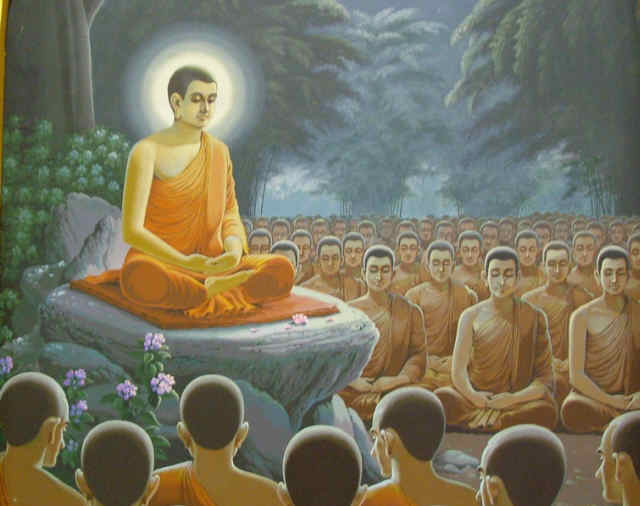When we sit in meditation
When we sit in meditation we want the mind to become peaceful, but it’s not peaceful. Why is this? We don’t want to think but we think. It’s like a person who goes to sit on an ants’ nest: the ants just keep on biting him. When the mind is the world then even sitting still with our eyes closed, all we see is the world. Pleasure, sorrow, anxiety, confusion – it all arises. Why is this? It’s because we still haven’t realized Dhamma. If the mind is like this the meditator can’t endure the worldly dhammas, he doesn’t investigate. It’s just the same as if he were sitting on an ants’ nest. The ants are going to bite because he’s right on their home! So what should he do? He should look for some poison or use fire to drive them out.
But most Dhamma practitioners don’t see it like that. If they feel content they just follow contentment, feeling discontent they just follow that. Following the worldly dhammas the mind becomes the world. Sometimes we may think, ”Oh, I can’t do it, it’s beyond me,”… so we don’t even try. This is because the mind is full of defilements, the worldly dhammas prevent the path from arising. We can’t endure in the development of morality, concentration and wisdom. It’s just like that man sitting on the ants’ nest. He can’t do anything, the ants are biting and crawling all over him, he’s immersed in confusion and agitation. He can’t rid his sitting place of the danger, so he just sits there, suffering. ~Ajahn Chah
















